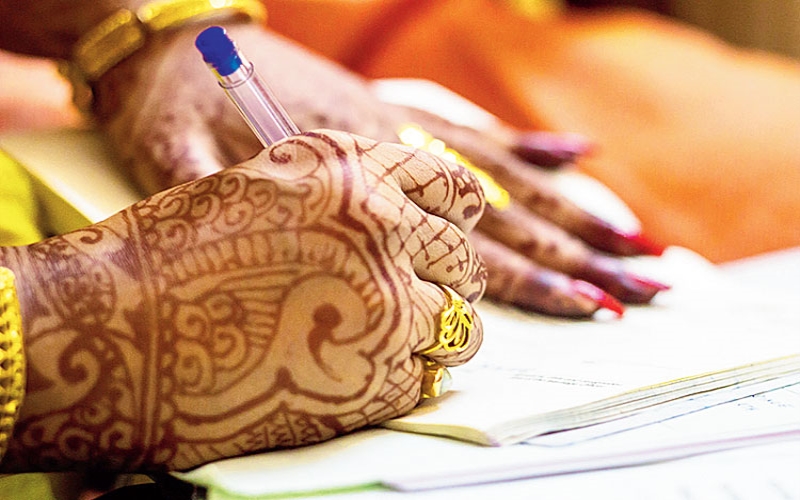A marriage certificate holds profound significance in the lives of couples, serving as a legal proof and official acknowledgment of their marital union. In India, the Supreme Court’s directive in 2006 made it mandatory to register marriages, particularly emphasizing the protection of women’s rights. Under Indian law, marriages can be registered under the Hindu Marriage Act, 1955, or the Special Marriage Act, 1954, with the marriage certificate being the cornerstone of this process.
Documents Required for Registration:
To obtain a marriage certificate, certain documents are indispensable:
- Aadhar cards of the bride, groom, and witnesses.
- Two colored passport-sized photographs.
- Self-attested copies of all documents.
- Address proof (voter ID card, ration card, passport) of the bride, groom, and witnesses.
- Nationality proof if one spouse is a foreigner.
- Age proof of the bride and groom.
- Separate marriage affidavits in the prescribed format.
One should always know the legal age for marriage in India is 18 for girls and 21 for boys, ensuring compliance with this law is integral to the marriage certificate application process.
Online Registration:
Many state governments provide online portals for marriage registration. For example, in Delhi, one can register at delhi.gov.in. After selecting the district and filling in the required details, including the marriage certificate form and appointment date, the application can be submitted. An acknowledgment slip with a temporary number will be generated, which must be printed for further proceedings.
Appointment:
Under the Hindu Marriage Act, an appointment is usually granted within 15 days of application, while under the Special Marriage Act, it may take up to 60 days.
Witnesses:
Any individual who attended the wedding can serve as a witness and sign the application form. They must provide identity and residence proof, such as Aadhar or PAN card.
Importance of Marriage Certificate:
- Passport and Bank Account: Essential for applying for a passport or opening a bank account post-marriage.
- Visas: Required for obtaining visas for both spouses.
- Travel Abroad: Necessary for traveling abroad using a spouse visa.
- Financial Matters: Enables a spouse to claim life insurance or bank deposits in case of the depositor’s demise.
- Legal Procedures: Facilitates legal procedures related to property ownership, inheritance, etc.
Birth Certificate’s Role:
The birth certificate plays a crucial role in the marriage certificate application process as it serves as proof of age for both spouses. Without a birth certificate, individuals may face challenges in proving their eligibility for marriage.
Marriage certificate is not merely a piece of paper but a document that holds legal significance and facilitates various aspects of a couple’s life. From official documentation to financial matters and legal procedures, its importance cannot be overstated. Therefore, obtaining a marriage certificate is not only a legal obligation but also a practical necessity for couples to avail themselves of their rights and privileges in society.

